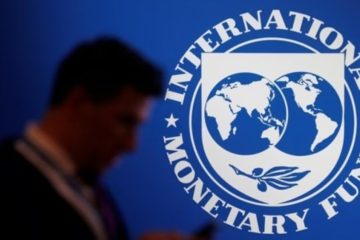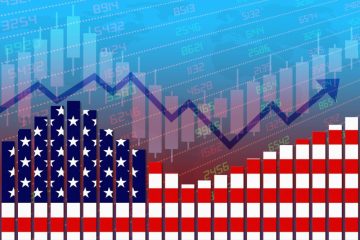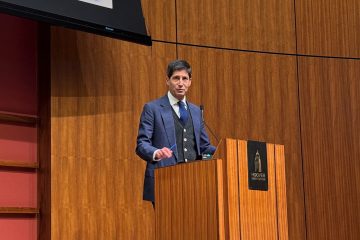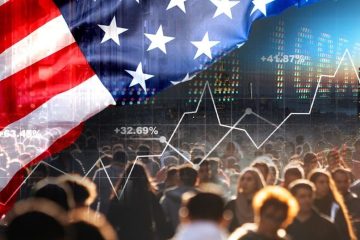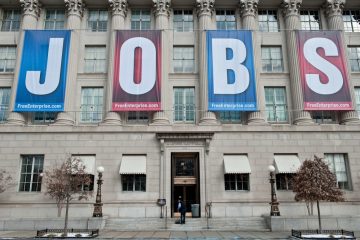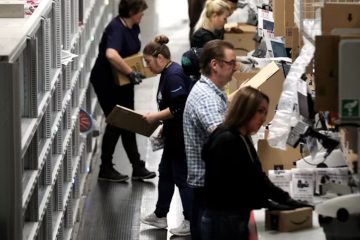China’s tech defies Trump’s export limits on Rare earths
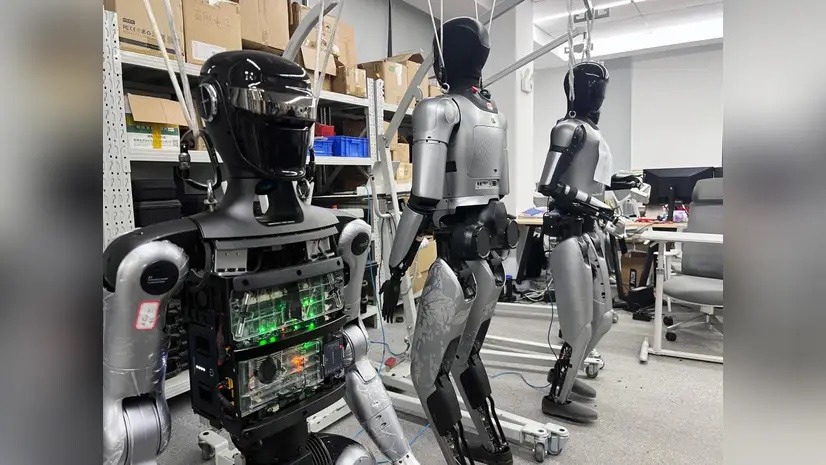
As Donald Trump wields US export controls on technology as a negotiating tool to secure supplies of rare earth magnets from Beijing, China is demonstrating its capabilities without the most advanced American semiconductors.
This month, a government-organized trip to Jiangsu and Zhejiang, two of China’s wealthiest provinces known for producing AI sensation DeepSeek, brought together a number of executives from technology firms to engage with journalists from Bloomberg News and various other media outlets. The message conveyed was one of defiance: China’s technology sector continues to pursue world dominance despite US restrictions.
Consider Magiclab Robotics Technology Co., a company established just over a year ago in the eastern city of Suzhou. The president, Wu Changzheng, stated that the company has independently developed over 90 percent of the components utilized in the production of humanoid robots. The remainder includes semiconductors and micro-controller units sourced both locally and internationally, he noted, emphasizing that they do not utilize US chips. “China doesn’t have many weak links in this industry,” Wu stated, while showcasing a human-sized robot intended for factory environments. He dismissed Trump’s recent ban on US firms exporting semiconductor design software to China, stating that his robots only need “standard chips.”
Other entrepreneurs highlighted self-reliance during the five-day trip, which included companies from bio-pharmaceuticals, humanoid robotics, AI, and automotive sectors—all crucial to President Xi Jinping’s manufacturing goals. Numerous individuals in China’s business sector have united in support of Xi’s government amid Trump’s tariffs and the increasing US export restrictions.
The trip highlights Beijing’s aim to enhance global investor confidence in its $19 trillion economy, which has faced challenges such as a property crash, deflation, and the highest tariffs from the US in a century. Despite DeepSeek’s unexpected AI breakthrough earlier this year demonstrating that China can innovate even with a restricted supply of chips, Beijing continues to struggle in keeping pace with the US, particularly due to its lack of access to Nvidia Corp.’s most advanced semiconductors.
During the press tour, the Chinese government primarily showcased companies that do not depend on high-end chips, including AISpeech Co, known for its development of AI-driven audio and video tools for vehicles. For companies leading the way in autonomous driving models or artificial general intelligence — systems that have human-level cognitive abilities — obtaining the latest chips is probably of much greater significance. 8 tech executives approached sensitive topics such as state subsidies with caution, downplaying the effects of a prolonged US effort to limit China’s technological growth. They highlighted the nation’s growing self-reliance while government officials listened closely from the sidelines. The executives discussed how they are leveraging local advantages that they believe are resistant to disruption, including a large talent pool and supply chains that are insulated from external influences.
Yu Kai, co-founder and chief scientific officer of AISpeech, stated that the company has expanded its workforce to over 700 individuals in research centers located in Beijing and Suzhou, having begun with a team of fewer than 10 people focused on developing an algorithm in Cambridge. A subsidiary has been established in Shenzhen due to its closeness to smart equipment manufacturing, and there is also a unit in southern China dedicated to producing software for vehicles created in collaboration with a local auto-making partner.
Highlighting the significant worry in Beijing regarding US technology restrictions, Xi has imposed limitations on China’s rare earth magnets in recent months to reverse some of Trump’s recent export limitations. US Commerce Secretary Howard Lutnick stated last week that the US and China have signed a document to formalize trade terms established last month in Geneva, which includes a commitment from Beijing to supply rare earths utilized in various applications, from wind turbines to jet planes.
China’s economic stamina was a recurring theme of the trip that commenced in Nanjing, a city in Jiangsu where researchers publish three times more scientific papers than those in New York. Transported by two buses, numerous journalists traveled to Suzhou and the nearby Zhejiang province via high-speed train, as the emphasis of discussions increasingly turned towards the advancement of green technologies. There is ongoing discussion regarding the significance of accessing cutting-edge chipmaking machines and Nvidia’s most advanced AI accelerators. Ren Zhengfei, the founder of Huawei Technologies Co., recently stated that Chinese firms can utilize methods like chip stacking to achieve outcomes comparable to the most advanced semiconductors. Beijing also restricts most AI services from US competitors, which means local companies are not required to compete with American leaders.
According to Julian Mueller-Kaler, director of the Strategic Foresight Hub at the Stimson Center in Washington, China must showcase “confidence and window dressing” following years of technology restrictions. He stated that high-end chips for AI data centers could be substituted with less capable models, which would lead to increased energy consumption. “The reason the Chinese didn’t really retaliate that much after the chips restrictions a few years ago is that Beijing actually likes them, to a certain degree,” he said. “It compels Chinese companies to cultivate their own capabilities and lessen dependence on American technology — a political objective that Chinese decision-makers have pursued for an extended period but was obstructed by economic circumstances.”
Nevertheless, despite the expertise evident, few companies will come through unscathed from the worsening relations with the US. Some executives on the trip expressed their concerns as Trump’s America First policy aims to restrict US investment in China’s high tech sectors. “The impact on financing is significant,” stated Zhang Jinhua, chairwoman of IASO Biotechnology Co., a company that produces a life-saving cancer treatment. “I advise my team to refrain from inquiring about when this winter will conclude. “We must treat winter as the four seasons and adapt to prolonged uncertainty.”

